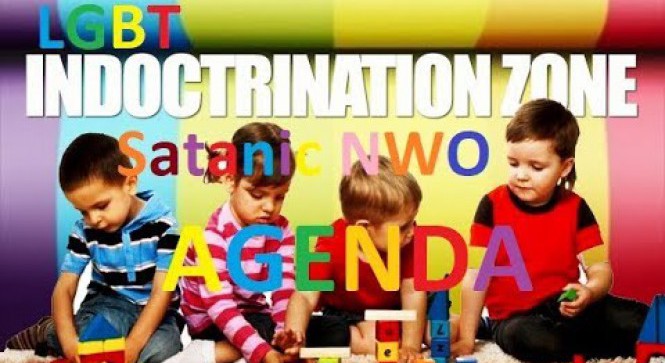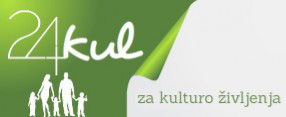
Nove oblike LGBT nasilja nad vernimi ljudmi !
21.01.2018Vedno več je poročil o tem, da v državah kjer zavlada LGBT totalitarizem sledi preganjanje kristjanov! Preberite si kaj se dogaja v Veliki Britaniji!
The secondary school I attended was founded in 1870. It had a Methodist foundation, and was set up in anticipation of the Universities Test Act of the following year, which eventually removed the ban on those who were not communicants in the Church of England from attending Oxford and Cambridge University. I was not from a Methodist family and was confirmed in the C of E during that time, but the story of the school’s founding always reminded me of the severe restrictions on religious freedom which used to occur on a daily basis in this country. Also, it speaks of the cost that many of our godly forebears in the ‘nonconformist’ churches paid for following Christ according to their conscience.
Before the repeal of the old laws, those who had a different worldview from the nominal Anglican male elite, whether Roman Catholic, Jewish, nonconformist or even atheist (there were not many Muslims in Britain at that time), simply did not have access to senior positions, or the means to achieve the highest levels of education. In other words, there was a restriction on freedom of belief. The many factors which brought about change, and led to eventual full democracy and the freedoms taken for granted a century later is part of a long and involved history, rightly celebrated, part of which is a tolerance based on shared belief in God and the dignity of all human beings as set out in the Bible.
In recent years many commentators have pointed out a new threat to these hard-won freedoms. We are now familiar with various well-publicised cases showing how freedom of thought and expression is now increasingly restricted, not now by attempts to preserve Anglican hegemony, but by a new political correctness tied to the sexual revolution. While 60 years ago limitations on what could be expressed in public derived from Christian morality and sensibilities (for example the ban on certain kinds of obscene publications), today the ideology governing the new censorship is anti-Christian.
So for example, sexually explicit and blasphemous “comedy” with foul language as a staple is regularly aired on TV, but street preachers are arrested for quoting the Bible, Christian bakers receive large fines for refusing to decorate a cake with pro LGBT slogans, trainee social workers are dismissed from university courses and teachers are blacklisted for expressing traditional Christian views on marriage and gender. Speakers at University societies, even lecturers, are no-platformed, and judges are disciplined for expressing what are deemed politically incorrect views on abortion and marriage.
The way we lose our freedoms happens gradually, and subtly. It doesn’t necessarily begin with laws; there just needs to be enough social disapproval against expressing certain views. Then, as Christians, we find that our thoughts are regulated not just by the police investigating “hate speech” allegations, disciplinary procedures at work, or by furious attacks on social media, but by others in the church. In fact, the censorship can come first from our theologically orthodox friends. “I see you’re planning to do a sermon on sex and marriage”, a vicar is told by a supportive member of his PCC, perhaps even his wife. “Please don’t say anything controversial that might upset people”. A teacher faces a gross misconduct charge for ‘misgendering’ a pupil at school, or a social worker is sacked after asking to be excused from decisions allocating foster children to same sex couples – and they find they receive no support from their church, rather an embarrassed turning away. These examples, all based on true incidents, show how the free expression of biblical truth in public is curtailed by a fearful and image-conscious Christian community as much as by the postmodern neo-Marxist campaigners in the media and the academy.
At General Synod in July it was not just the liberals who supported the call for a ban on ‘conversion therapy’, an ill-defined phrase which ends up including any counselling or prayer ministry sought by those who want to move away from same sex desire (see this clearly written recent account). Some evangelicals, and theologically orthodox Bishops voted for the motion, thereby voting in favour of LGBT ideology and the restriction of biblical Christian sexual ethics and pastoral practice. Perhaps they wanted to show their opposition to unkindness towards people identifying as gay (which all right-minded Christians share), but believed that they would be free to retain their understandings of sex and marriage in the private sphere as long as it’s not ‘imposed’ on anyone else.
How wrong they are. The new missionary-imperialists of pansexuality will not stop at “full inclusion” of sexually active LGBT people in the leadership of the church, blessing of gay relationships and same sex marriage in church services, just as they will not stop at teaching children to accept and celebrate gender fluidity and transition. It is not just the lack of welcome and bullying experienced by the LGBT minority which is seen as the problem, but the beliefs behind it, which lead to the actions – for example ‘misgendering’ a ‘transgender’ child. According to an increasingly prevalent view, traditional beliefs that biological sex corresponds to gender, that heterosexual marriage or celibate singleness is good while homosexual practice is sinful, are in themselves harmful. The fact that some people believe these things causes distress, and so these beliefs should be ‘stamped out’.
American academic Christopher Rosik, reviewing a recent influential paper which appeared in the journal of the American Psychological Association, shows how LGBT campaigners use the findings of ‘research’ to state categorically that religious beliefs showing “a basic lack of approval” of homosexual practice cause “minority stress” even among those who have no contact with those who hold these beliefs. The newly formed Ozanne Foundation appears to hold a similar view. Rosik’s piece should be read carefully, as he concludes that it will soon be difficult to “hide from the social and policy implications of research that declares their historic Judeo-Christian sexual ethic to be a severe threat to the health and wellbeing of LGB persons.”
LGBT people feel a lack of full validation for their identity and behaviour, because of the existence of conservative religious beliefs in society. This causes distress, and so the belief system should be discouraged.This is the basis of the new attack on freedom of thought and expression. It should be challenged at the highest levels, and this is why Anglican Mainstream is supporting a new campaign to “reclaim religious freedom”through a new Act of Parliament.














Komentarji
Komentiranje trenutno ni mogoče.